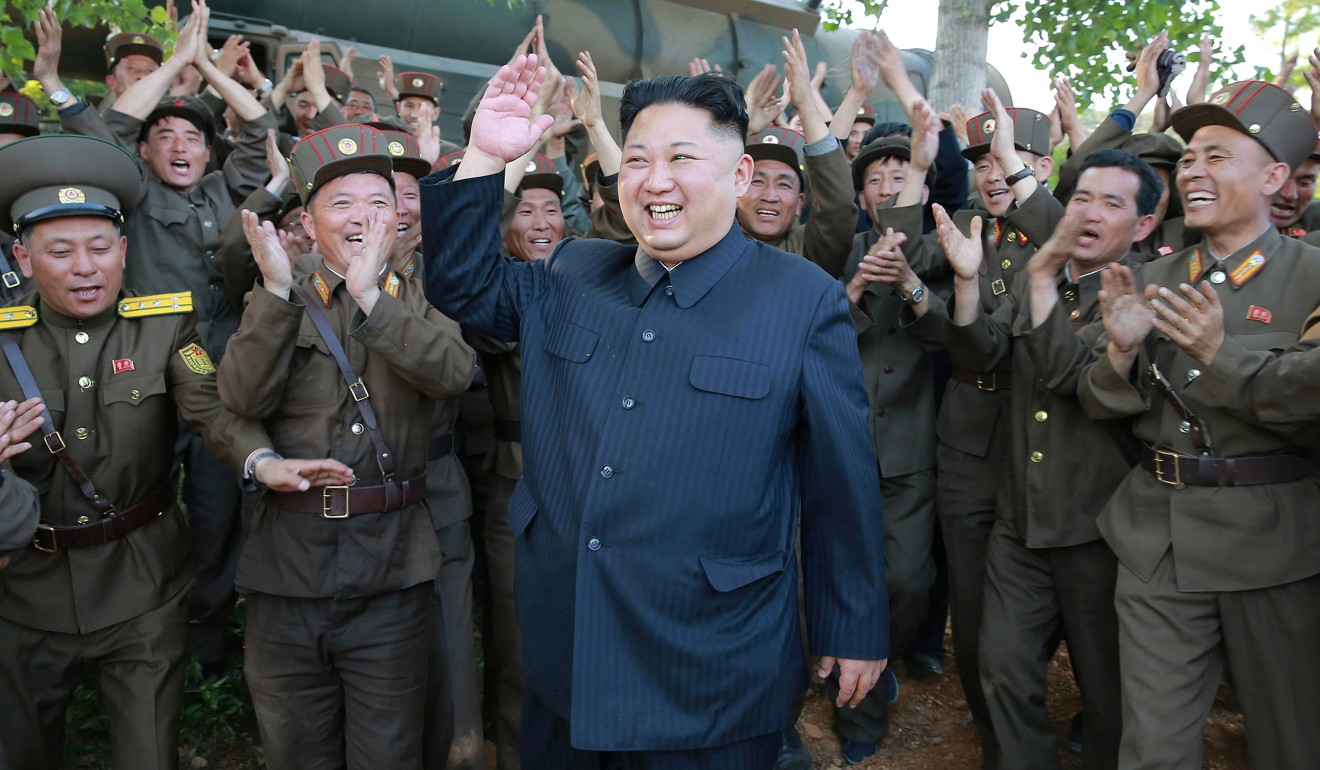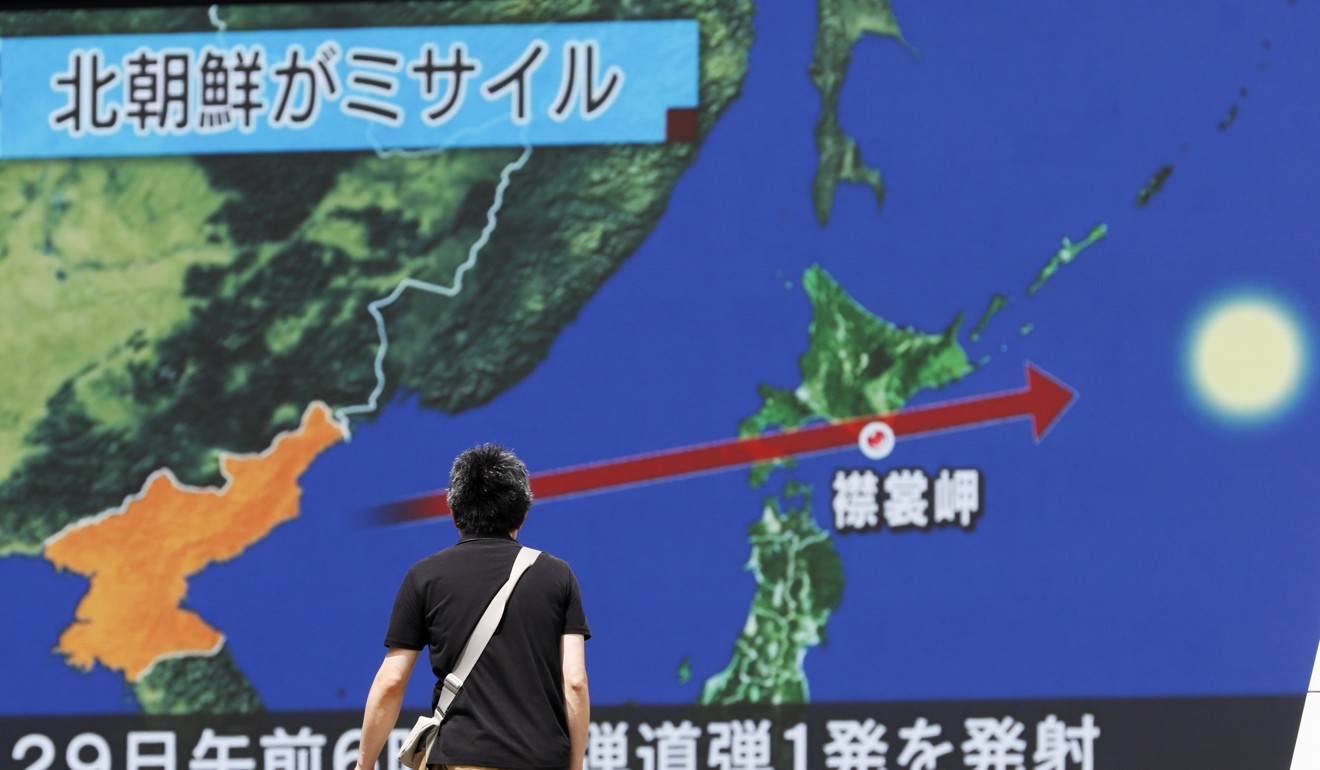
Can China and Russia work together to defuse Korean peninsula’s nuclear crisis?
US presses for tougher sanctions ahead of a UN meeting
The United States has requested a vote on Monday on a United Nations resolution that would impose the toughest-ever sanctions on North Korea as China and Russia work together to provide a counterweight to Washington’s efforts.
Washington has presented a draft UN resolution calling for an oil embargo on North Korea, an assets freeze on Kim Jong-un, a ban on textiles imports and an end to payments for North Korean guest workers.
Diplomats said the US demand for a speedy UN Security Council vote was aimed at putting maximum pressure on China and reflected Washington’s escalating concern over Pyongyang’s sixth nuclear test last weekend.
North Korea celebrated the 69th anniversary of its founding on Saturday by boasting of its status as a world-class military power and taking an explicitly adversarial stand against the US.
Rodong Sinmun, the official newspaper of the Central Committee of the Workers Party of Korea, in its front page praised the country for becoming an “invincible nuclear power”.
Even though China had earlier hinted that it is likely to support tougher sanctions, diplomats said they would expect resistance from Beijing and Moscow.
Beijing and Moscow’s sentiments are being studied carefully as the two are Pyongyang’s only remaining allies.
The repeated launch of ballistic missile and nuclear tests has prompted China and Russia to team up to counterbalance US calls for tougher sanctions.
A few hours after Pyongyang’s latest nuclear test, Chinese President Xi Jinping and his Russian counterpart Vladimir Putin agreed to step up coordination and “appropriately deal with” North Korea during their talks on the sidelines of an emerging market economies summit.
Chinese Foreign Minister Wang Yi said the UN Security Council should take steps to rein in Pyongyang, but also said dialogue should be the way to resolve the issue.
Catherine Dill, a US researcher from the James Martin Centre for Nonproliferation Studies, said even though Beijing and Moscow’s interests in North Korea were different, they were equally concerned about the risk North Korea’s nuclear weapons posed and wanted to make an impact on the international community.
“This won’t involve rejecting outright [the sanctions], as it is not politically feasible at this point ... but will likely involve negotiating down some of the initial US demands,” she said.
Watch: US accuses North Korea of ‘begging for war’
China accounts for nearly 90 per cent of North Korea’s foreign trade. Even though Russia’s trade volume with North Korea is less than US$100 million, it still has extensive ties with Pyongyang.
In January, Russia’s TASS news agency reported that Moscow and Pyongyang planned to increase cooperation on rail infrastructure.
Moscow also expanded a programme to bring North Korean workers to Russia.
Some weapons used by North Korea have shown obvious Russian traits. For example, the liquid-fuelled engine in its Hwasong-14 intercontinental ballistic missile originated from the Soviet R-27 Zyb submarine-launched ballistic missile.
Artyom Lukin, a North Korean expert at Russia’s Far Eastern Federal University, said Beijing and Moscow had converging strategic interests over North Korea, and both feared the collapse of the regime would cause major instability on their borders.
“Russia and China are both interested in the continued existence of North Korea, which they see as a sort of buffer against the US-centered alliances in Northeast Asia,” he said.
“Moscow and Beijing are concerned that [US President Donald] Trump’s seeming bellicosity might initiate a war that is likely to bring utter devastation to the Korean peninsula, with disastrous economic and environmental consequences for the neighbouring countries.”

Sun Xingjie, a Korean affairs expert at Jilin University, said the interests of China and Russia were different, with Beijing showing more serious concerns about nuclear weapons than Moscow.
“Russia has been showing partiality towards North Korea acquiring nuclear weapons, while China is strictly against it,” Sun said.
“As for China, cooperating with Russia is the only way as Beijing does not want to see another different political camp in Asia on North Korea matters.”
But Zhang Liangui, a professor of international strategic research at the Communist Party’s Central Party School, said Russia was more likely to tolerate a nuclearised North Korea as its border with North Korea was not as long as China’s.
Russia’s active role in North Korean matters is part of a power play among the world’s largest countries.
“North Korea now views Russia as an important backup as its relations are more tense with China,” he added.
Additional reporting by Associated Press, Agence France-Presse and Kyodo


